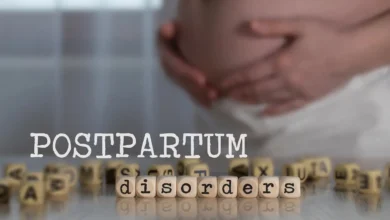Many Australian households have toddlers that shriek when they want to do everything themselves. When they are denied their messy, slow enjoyment, they become irritated. It is important to know what to do when a toddler insists on doing everything independently. By allowing them to help and setting reasonable limits, you can encourage their independence.
“I Do it Myself!”
This is normal, and it shows that your child is growing and developing.
What’s the less good news? Well. When your child is going through this stage, it can feel like a meltdown.
There are many things that parents can do to reduce the stress of living with an independent toddler. Start with these five great places:
1. Extra Time is Required
Adding a 5-minute buffer to your schedule when you have to go out or accomplish something can be a great way to relieve stress.
It doesn’t necessarily mean everything will be perfect, but it might make you feel less stressed to know that you aren’t racing against the clock.
2. Create Decoy Activities
You can distract your toddler with an easier but still interesting task if you are doing an activity you know they will be eager to help with.
This may require a bit more planning, but the effort will be worth it. It could even become second nature, allowing your toddler to feel independent and still feel helpful.
3. Half the Job
You and your child can share some tasks. You could, for example, ask your child to pick a cup while you pour the drink. You could put a half-sock on, and then they can pull it. If it makes sense, teamwork can make the dream come true, even if that takes a bit longer.

4. Choose from a Range of Options
You probably already know that giving your child options will help to avoid conflict.
Give your child options. “Would I like the green or blue cup?” “Would I like baked beans on my toast or an egg?” Giving them choices will help your child feel in control and reduce the frustration that comes with being small.

5. Prepare to be Confused
Your toddler may want to be treated as a big child right now, but it doesn’t mean that she will still be a baby when bedtime comes! As you navigate the ever-changing stage of childhood, be flexible, compassionate, and forgiving. If none of these suggestions work with your toddler who is very helpful, remember that it won’t be this way forever.
It can be hard at times, but your child will soon be able to do more Big Kid stuff and be less likely to resist being helped when needed. You will both have made it through this crucial phase together. Parenting expert Maggie Dent says that these difficult moments are normal and important for a child to develop their sense of individuality.
When things get difficult, don’t forget that you aren’t a bad parent. Things will improve. You will lose your temper – you may even want to throw a tantrum and act like a child at times.

You May Also Like: Taming Your Tricky Toddler
Toddler Development during the “Me Do It Phase”
You were completely dependent on your baby for the first 12 months of his or her life. Now, they are a whirlwind, full of energy and determined to take care of themselves. Avoid getting in their way. Parents may feel mixed emotions about their child’s newfound independence. You may feel proud and excited about your child’s progress, but you might also feel a little sad that the baby stage is over. There’s also the inevitable tug of war as your toddler’s freedom-seeking desires clash with your expectations.
The “Me Do It Stage” is usually between 18-36 months. Children’s intensity will vary depending on their temperament. Others may be cautious and approach this phase with caution. This phase can be both exciting and challenging. It shows that your child is recognizing their independence and feeling safe to explore it. This stage can be a time of frustration and temper tantrums, but it is also a period to celebrate. Children who are encouraged to do things on their own develop new skills and gain self-esteem. While letting your child do something on their own might take longer than doing the task for them, it is worth it in the long run.
The Importance Of Independence
It is important to encourage independence in your child for their social and emotional development. They can develop an identity and understand their place in society. Children who assert their independence learn to take responsibility for themselves and make decisions, which is the basis for problem-solving and critical thinking. The exploration does not only involve physical tasks, but also emotional regulation as toddlers are taught to regulate their emotions and reactions.
Tips for Encouraging Toddler Development
It is exciting and difficult to watch your child grow up and become independent. It’s important to support their growth as they move into the “Me Do It Phase”. Seven practical ways to nurture your child’s sense of independence while encouraging their growth.
You May Also Like: Manners All Kids Should Learn
- Give Reasonable Choices :Empower your toddler with choices that foster independence. You can give your toddler two options that are age-appropriate, like “You can choose to wear the blue shirt or green shirt,” or “Would it be better to read a story or build a block-tower?”
- Create an environment that promotes safety and exploration. Make your home toddler-friendly. Store plastic bowls and cups in low cabinets so that they can help themselves with snacks. Choose simple knit pants that have elastic waistbands over those with buttons. Arrange your child’s favorite toys on open, low shelves. This will allow them to explore their environment safely and independently. Consider creating activity zones for your children in your home. For example, a reading corner or an arts and crafts corner where they can express themselves.
- Do Toddler-Friendly Activity Together: Toddlers are innately motivated to help. You can engage them in activities and chores that are age-appropriate, like baking cookies, gardening, or sorting the laundry. Even simple chores, such as washing vegetables before dinner, can satisfy a child’s need to participate. As your toddler begins to learn how to work with you, these shared experiences will boost their self-confidence and promote cooperation. No matter how little their contribution is, celebrate it to strengthen their sense of accomplishment.
- Incorporate “Toddler Time” into Your Daily Routine. Include extra time in your daily routine to accommodate your child’s independence. Allowing them to explore at their own pace will help you develop patience and give them a feeling of control. This is the time to do things your toddler loves, such as playing with blocks, exploring nature, or drawing. Setting up a schedule that includes “toddler” time can help you set expectations and reduce your frustration.
- Use simple, direct language to communicate with your toddler: Be clear and concise when you speak. Do not focus on what you do not want, but rather on what you would like them to accomplish. If your toddler climbs shelves to get a snack, you can say “I see that you want one.” Climbing on shelves is not safe. You can grab the bowls from the bottom of the cupboard instead.
- Adapt Your Child to Their Needs: Recognize the uniqueness of each toddler and pay attention to their temperament and developmental pace. Some children are more adventurous, while others might be cautious. Be flexible, and adapt your approach if necessary. This will help your child feel understood and supported. Be aware of their reactions in different situations, and respond to them. This adaptability will build trust and strengthen your role as a nurturing leader.
- Encourage Problem-Solving When your toddler faces challenges, encourage him to think critically about how to overcome these. Asking guiding questions, such as “What can we do to get that toy?” and “How can we simplify this?” instead of immediately helping, will empower your child to solve problems.
Throughout childhood, and into early adulthood, your child will struggle to find the right balance between parental security and independence. This is a normal and healthy struggle that’s essential to developing self-sufficient, strong adults. As a parent, your role is to lead by example, provide gentle guidance, and foster a warm, trustworthy relationship that encourages their growth. This phase is only one part of the journey. Your support will shape your child’s confidence and competence in years to come.
Conclusion
It can be exciting and challenging to navigate life with an independent child. It’s normal for them to be frustrated by their desire to do things themselves. You can encourage their independence and reduce stress by offering them reasonable choices, creating an environment that is safe, and including “toddler-time” in your daily routine.
You can help your child develop essential skills and confidence by being patient. By fostering independence in your child now, you are laying the foundation for resilient and self-sufficient people in the future.



